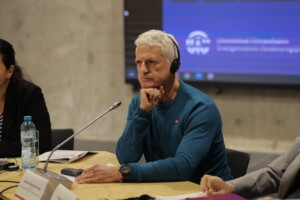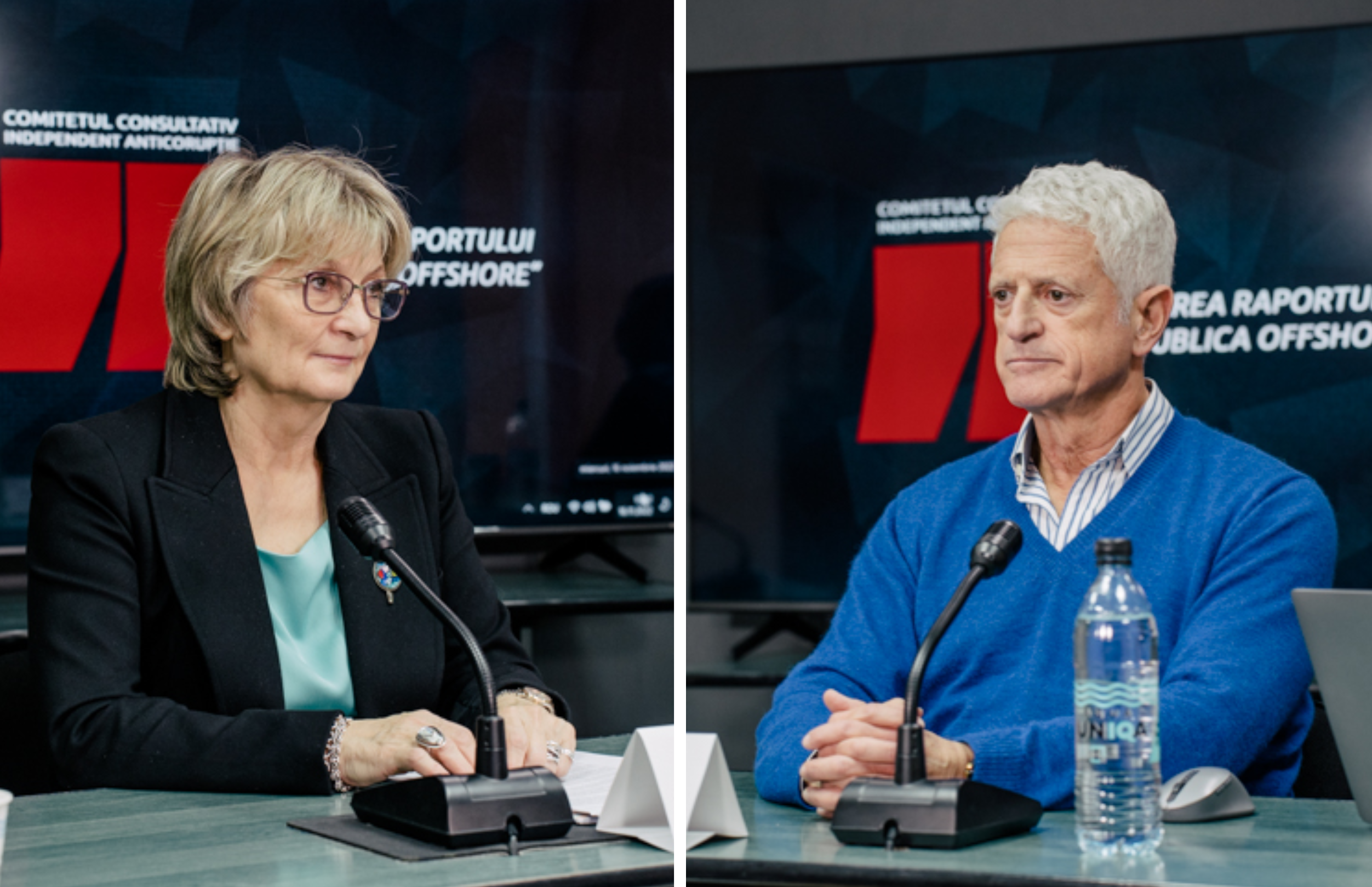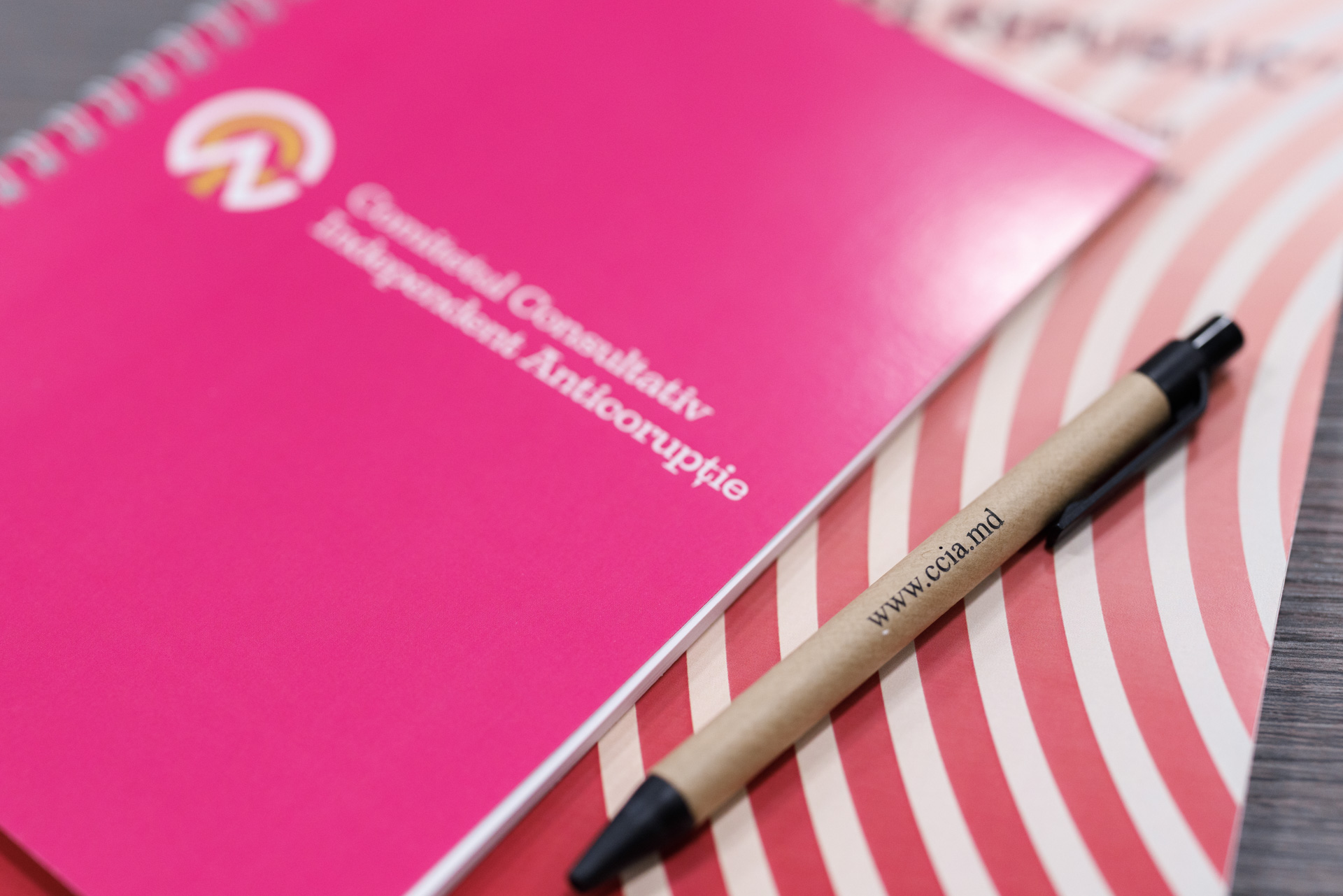Republic of Moldova is struggling with corruption for years, corruption being one of the main obstacles in the country’s development. The relevant stakeholders have implemented a wide range of measures to prevent and fight corruption, but these have not been accompanied by coherent policies, strict adherence to declared goals by all parties and the measures have been often ineffective, insufficient and poorly executed. The anti-corruption and integrity architecture of the Republic of Moldova is a weak point of national justice reform efforts, shows the latest report published by the Independent Anti-Corruption Advisory Committee (CCIA) – “Disrupting Dysfunctionality”: Resetting Republic of Moldova’s Anti-Corruption Institutions.
The justice reforms initiated in 2011 led to very modest results despite considerable budgetary investments and support from development partners. The Anti-corruption Prosecutor’s Office was created in 2016 to fight high-level corruption, but it has long diverted much if not most of its limited resources to petty corruption. Its track record in high level corruption is scandalously poor.
This report looked at the institutional architecture of the main institutions with anti-corruption and integrity mandate in the Republic of Moldova: Anti-corruption Prosecutor’s Office (APO), National Anti-corruption Centre (NAC), Criminal Asset Recovery Agency (CARA), National Integrity Authority (NIA), Financial Intelligence Unit (FIU), as well as the courts’ role in the anti-corruption infrastructure. The report also analyzed the data on their performance and staff, relevant assessment reports produced by civil society organizations, as well as the data on population’s perception and perceptions and experiences of several individuals working within the analyzed institutions, as well as their leadership. The operational independence of anti-corruption institutions from political influence is crucial for the proper functioning of the anti-corruption and integrity institutions of the Republic of Moldova. The justice reform initiatives launched along the years have had little impact, presenting a deterioration during the captured state period of 2016-2019. While there have been some advances since recent change of power, their impact to date has yet to be felt.

The report highlights the key vulnerabilities as determined by the CCIA and recommends more clarity of responsibilities vis-a-vis mandates for investigating corruption based on the nature of the misconduct, in order to increase efficiency and achieve tangible results. It provides a series of 52 recommendations addressed to the Parliament, APO, NAC, CARA, NIA and other institutions which refer to major vulnerabilities and improve their performance in the long term. The report includes the most important recommendations that in the CCIA’s view should be implemented to strengthen the fight against corruption in the country.
The main recommendations include strengthening the institutional and operational independence of APO, focusing it on criminal investigation of high-level corruption, including solely conducting criminal investigation and presenting the accusation in all levels of courts. This means that APO should have all the necessary resources for conducting criminal investigation independently, including competences and human resources for conducting special investigative measures and analytical work to effectively exercise its mandate. Legislative and operational changes to implement these recommendations should be carried out in three months. The report recommends that NAC’s mandate is limited to investigating systemic and, for a transitional period, petty corruption, and other functions such as prevention/awareness raising, anti-corruption review and institutional integrity evaluation are removed from its mandate. Within 24 months, NAC should assess what constitutes petty corruption in Republic of Moldova’s context and present to Parliament a clear delineation between systemic and petty corruption in order for the latter to amend the legislation accordingly by assigning petty corruption to the Ministry of Internal Affairs for investigation. CARA should have in its mandate the competence to carry out financial investigations during court examination and post-sentence. CARA is to remain under NAC for up to two years, subject to an independent assessment of its performance. NIA should better define and improve the methodology on asset verification and develop and improve verification capabilities with the aim of reaching the ability to verify in-depth a minimum of 10% of the total number of declarations per year. Courts should hold public court hearings in all high-profile cases, with exceptions made only under circumstances required by law and in conformity with the established procedure and should ensure a unified caselaw on integrity issues, consistent with relevant international standards.

The report recommends that all institutions covered by the report prioritize improving cooperation with all relevant national institutions, including by developing guidelines for cooperation to help them implement their mandate in an effective manner. All institutions with primary anti-corruption mandate should seek to improve their abilities to cooperate with other countries and specialized international organizations such as EUROJUST to effectively carry out their mandate.
The CCIA will duly monitor the manner in which recommendations are implemented and will follow-up with reports on their implementation level.
The CCIA’s report “Disrupting Dysfunctionality”: Resetting Republic of Moldova’s Anti-Corruption Institutions is currently available in Romanian and English languages on the www.ccia.md website.
For any questions pertaining to the report or the CCIA’s activity, contact us at presa@ccia.md and contact@ccia.md. Follow us on Facebook and LinkedIn to keep up with the latest updates.





